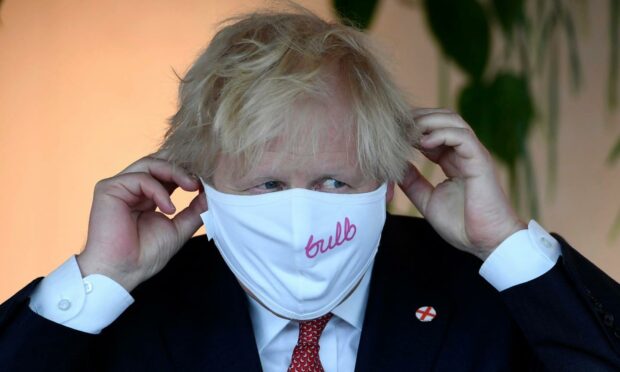Putting the latest failed energy supplier under a “special” administration will avoid a hand grenade going off at another supplier, a Scottish insolvency expert said today (November 23).
Accountant Alistair Dickson, head of SKSi Scotland, also urged the UK Government to do more to regulate the sector.
Action is needed to stop any more firms with “inadequate funding, inappropriate hedging strategies and nonsense valuations” being created in the industry, he said.
The government won’t let consumers go without supply, but forcing customers onto an existing supplier may expedite further collapses. ”
Alistair Dickson, head of SKSi Scotland.
Mr Dickson was speaking just a day after it emerged Bulb Energy, with 1.7 million customers around the UK, was heading for administration – the latest casualty of escalating gas prices.
Bulb’s demise comes just a few months after Prime Minister Boris Johnson paid an official visit to the firm’s headquarters in London.
So far, a total of 22 energy providers have ceased trading during the gas crisis, which has seen wholesale energy prices rocket amid concerns over international supplies.
Which energy firms have gone bust?
Natural gas prices have climbed sharply in recent months, but the UK’s price cap on energy bills stops suppliers from swiftly passing these extra costs onto their customers.
Bulb – the seventh biggest supplier in the UK – is the biggest casualty to date.
It will be the first to be placed into a “special” administration, where it will be run by the government through regulator Ofgem.
The previous business failures all led to other companies taking over supplies.
But taxpayers’ money will be used to keep Bulb alive, making sure customers of the firm can continue to be supplied with energy this winter.
‘Too big to fail’
Mr Dickson said: “Many informed commentators believe this is only the beginning.
“This crisis has been allowed to grow for far too long, and now it’s too big to control.
“With Bulb Energy the largest energy company to hit the buffers, it’s deemed too big to fail, and so it now finds itself in special administration to obtain protection from creditors and protect the supply of energy to its customers.”
He added: “Bulb is believed to have too many customers to be absorbed by another energy business under the “supplier of last resort” process usually relied upon when an energy company fails.
“Under that process a provider is required to take a competitor company’s problems on board – and in doing so they may speed up their own demise.
“It’s essentially catching a hand grenade. The government won’t let consumers go without supply, but forcing customers onto an existing supplier may expedite further collapses. ”
The UK industry is going to end up back where it started, with four or five big energy providers.”
The list of energy suppliers going bust is likely to keep growing, Mr Dickson warned.
He added: “Bulb was suitably hedged and funded but it still couldn’t survive.
“The UK industry is going to end up back where it started, with four or five big energy providers. The opening up of the market has completely backfired.”
The crisis has major risks for both the public and private sectors, he said, adding: “There are examples of councils diversifying and buying these billing companies – but what are the repercussions of this for a public sector already up to its armpits in debt?
“There’s a major reckoning coming.”
Pensions warning
He continued: “Pensions will also be hit by this crisis, due to the level of investment by private equity firms.”
“The government should have stepped in a long time ago to stop energy companies from overtrading.
“These companies have proven to be unable to withstand market shocks.
“From nothing, they have enticed customers to switch with low fixed tariffs – effectively driving the price down for the benefit of the consumer.”

